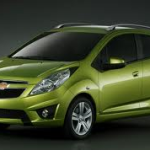Price, Cost, and Value

Robert Menard
Certified Purchasing Professional,
Certified Professional Purchasing Consultant, Certified Green Purchasing Professional, Certified Professional Purchasing Manager
One of the benefits of a long tenure in our profession is the uncanny ability to spot gimmickry. This approach is not new to the purchasing and procurement world. About 20 years ago, an egregious negotiation marketer touted his concept of Win-win negotiation, where the capital ‘W’ indicated that the Winner would do better than the winner. Clear? It was hokey and flamed out soon as it had not substance.
In similar fashion, a recent blog post from a self-promoter in the purchasing world grabbed my attention because he tried to make the point that “value” was to this decade what Total Cost of Ownership (TCO) was to the 1990s. The distinction is bogus because value has always been an important factor in the procurement decision.
He used the example of buying a car for a corporate exec and swiftly blew off the price only argument. So far, so good. He then he took on the TCO argument, correctly pointing out how gas mileage, maintenance, consumables, etc. factor into the TCO decision.
 But his value argument goes off the rails when he brings the Chevy Spark into the analysis. Clearly, a Chevy Spark would be an inappropriate choice for a corporate exec but because it goes to the price argument, not value. Yeah, the Spark is inexpensive at an average price paid at less than $11,500 for a 2014 model but it also lacks the basics, let alone the luxuries.
But his value argument goes off the rails when he brings the Chevy Spark into the analysis. Clearly, a Chevy Spark would be an inappropriate choice for a corporate exec but because it goes to the price argument, not value. Yeah, the Spark is inexpensive at an average price paid at less than $11,500 for a 2014 model but it also lacks the basics, let alone the luxuries.
In this and many, indeed the majority of other cases, the concept of value is elusive and subjective. While this truth is acknowledged in the blog post, it is also diminished. Further, the author goes on to explain that it is usually difficult if not impossible to identify the best value without resort to subjective factors.
HUH?
Of course value is subjective. In this case, consultation with the end user, the corporate exec, will determine value. Does he want a roomy upscale sedan to ferry around prospects? Does he fear ostentation and prefer a plain Jane car? Is an SUV more appropriate? The price difference among all of these is not likely to be substantial but will be about triple the bargain basement price of the Spark.
The lesson here is an old and proven principle. Consult with the end user. Other, it is impossible to provide what he wants, let alone price, TCO, or value. This fact is still true:
Best Value is defined as the lowest TCO.
The sophistry of the value argument is about as worthy of consideration as the specious Win-win publicity stunt.